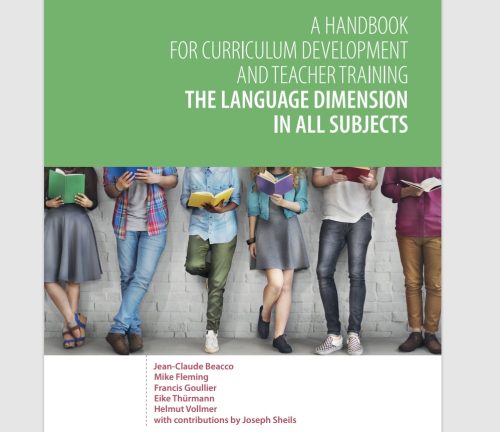Course Nr.: # 6 Methodologies and technology for all teachers to support (multilingual) learners to develop subject-specific literacy
2025
Utrecht
Feb. 16 – 21
July 13 – 18
October 19 – 24
- Target Groups
– Teachers interested in subject teaching in which all pupils, regardless of their language background, can participate through a targeted focus on (subject specific) language and language development
– (language / support) teachers and/or ICT coordinators involved in or expected to take a role in local, professional development programmes with a focus on language-related issues in subject teaching.
Course Aims
This course aims to:
• familiarize teachers with didactic approaches to developing student language(s) awareness
• promote teacher professionalism in applying inclusive strategies that teachers can use to engage all students in multilingual classes
• empower teachers to apply subject language scaffolding strategies and related use of technolgy (interactive screens and apps that facilitate interaction).
• develop participants’ skills related to adapting and designing (digital) materials.
• raising awareness on issues such as: `quality of materials design’ and `enhancing interaction in the classroom`.
Methodology:
The course combines plenary, tutor-led introductions & viewing videos of exemplary classroom procedures with follow-up activities when participants do practical work individually, in pairs and small groups applying the concepts and principles presented by analyzing and discussing viewed practices, and/or practicing approaches involving specific technologies or applications.
To address the anticipated variety in participants’ interests and needs (in terms of target groups and individual skills levels) most tasks are designed to accomodate differentiated relevant learning experiences and outcomes.
At the end of the week delegates will demo, share and discuss a teaching unit created during the hands-on sessions.
To provide flexible access to course related tasks and resources a course learning management system (LMS) will be used. After the course concludes, participants will be able to access the LMS to promote follow-up communication and collaborative learning.
Preparation:
A pre-course, online questionnaire could be provided to assess pre-knowledge and further align course content and procedures to needs and (specific) interests.
Delegates are requested to bring subject book(s) and/or related ICT materials (if available) to be used when creating customised materials and activities.
Day-to-day Programme Topics
Day 1
• Meet & Greet / Introductions
• Questionnaire review / finetuning expectations
• Cultural Event
Day 2
• Overview of course and course structure in the VLE
• Introduction:
– Exploring and aligning participants’ understanding of the concept ‘subject literacy’
– Analysing pedagogies how dialogue can support learning
• Defining the aims and key indicators of dialogic teaching, focus on teacher-student dialogue
• Reviewing interventions to stimulate learners to put their thoughts into words, not only in everyday language, but increasingly in the way that subject specialists do.
• Viewing videos with sample practices
• Reflection on own current practice
• Feed up on the course task: (re)design and develop a dialogue-based, interactive lesson: selecting textbook topic / unit in current practice for elaboration
• Review of day 2
Day 3
• Defining clear language goals – a prerequisite for language-oriented education
• Key features of whole-class dialogue, dialogue between peers and dialogue in curriculum subjects
• Methods and materials to facilitate learners to listen to, read and actively use the subject specific language
• Methods and resources for observing and analysing classroom talk
• Exploring the potential of materials to support effective dialogue related to specific classroom activities
Day 4
• How to provide scaffolding of language: 1) planned 2) interactive
• Tips for planning interventions to encourage classroom discourse
• Exploring methods to employ multilingualism as a resource
• Developing the first draft of your lesson plan
Day 5
• Focus on requirements for and facilitation of effective group work
• Analysing group work videos
• Guidelines for effective groupwork
• Developing the contents and tech-related materials for your lesson plan
Day 6
• Finalizing designing sample lesson activities
• Lesson demo, sharing and discussing materials created by participants
• Course wrap-up, evaluation and certification
Click here for the General TELLConsult Course Terms (registration, procedures, costs, cancellation, etc…)